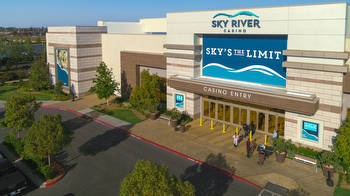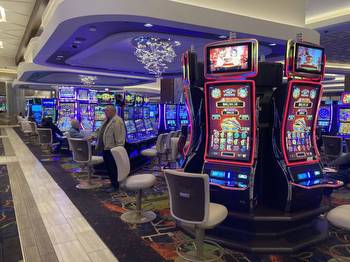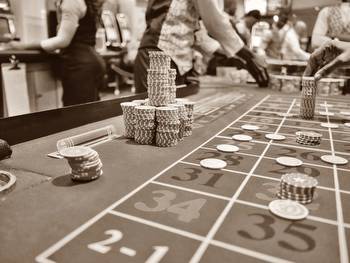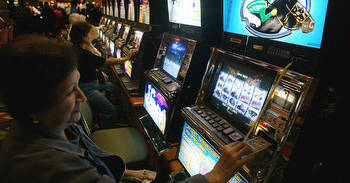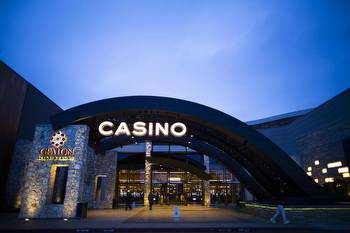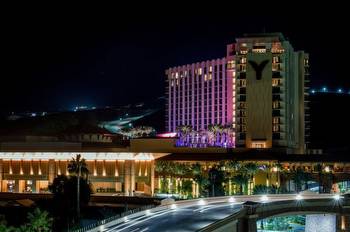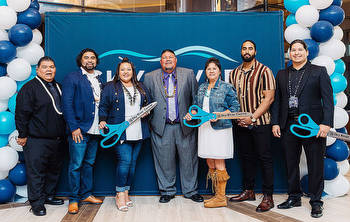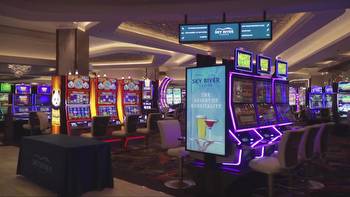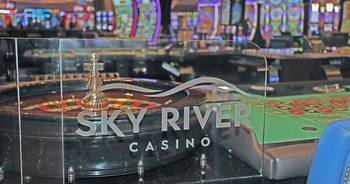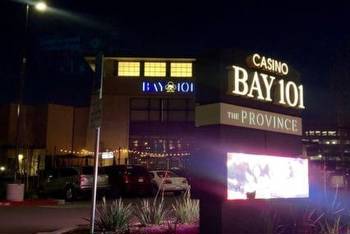Expected Defeats of Props. 26 & 27 Are Still Victories for Gambling

You can’t miss the brand-new casino on Highway 99 in the Sacramento suburb of Elk Grove. It’s the size of a Costco, with bright blue signs above the entrances, proclaiming, “Sky’s the Limit!”
Joe Mathews
Opinion
That might seem like mere marketing, a sunny pun on the casino’s name, Sky River. But it describes the reality of gambling across California today: there are few limits on the action.
Back in 2000, when California voters approved casino gambling for Indian tribes, we were told that gambling here would be governed by strict limits. Only certain games would be permitted in California. Sports gambling and Vegas-style gaming would stay in Vegas. And tribal casinos wouldn’t show up in our big cities and suburbs. They’d be limited to Indian lands, in less populated regions.
2022 has made clear that we were fools to believe any of that.
Gambling’s Unstoppable Expansion in California
Sky River’s opening is just one example of gambling’s unstoppable expansion across our state.
Today gambling is everywhere. California now has 81 Indian casinos, four privately operated race tracks, 20,000-plus stores selling lottery tickets, and 72 cardrooms, which are pushing for their own expansion.Tribes aren’t in fact limited to previously owned lands; they can buy new land so that they can build bigger, more accessible casinos. Sky River sits on land acquired by the Wilton Rancheria tribe through a federal trust process.
Today gambling is everywhere. California now has 81 Indian casinos, four privately operated race tracks, 20,000-plus stores selling lottery tickets, and 72 cardrooms, which are pushing for their own expansion.
Gambling money now fuels our politics, and casino ads dominate the airwaves. This fall, the Bay Area radio station, KGO-AM, wiped out its news and talk shows and relaunched as a sports gambling station, The Spread.
This year, the scale of gambling’s cultural reach became apparent through competing measures to secure sports gambling monopolies. Proposition 26, a ballot initiative, sponsored by tribes with big casinos, seeks a tribal monopoly on sports wagers, while also permitting roulette and dice games at tribal casinos. Proposition 27, sponsored by online gambling companies, seeks similar power over sports gambling for DraftKings and Fan Duel, while also allowing those firms to save on taxes.
$440 Million Spent Promoting Props. 26 & 27
Both measures trail in the polls and should lose. But these propositions aren’t defeats for gambling expansion. The more than $440 million spent on these campaigns—doubling the previous California record for campaign spending—is a show of force, serving notice that the gaming industry will eventually spend whatever it takes to expand.
This type of gambling is highly addictive; the average gambling debt for male addicts exceeds $50,000.The campaign ads double as normalizers of, sports gambling and advertisements that reach those too young to gamble legally. My three young sons, confronted with constant Props. 26 and 27 ads on YouTube and sites with games for kids, have been asking me all kinds of questions about gambling.
This is not your father’s weekly bet. Online sports wagering isn’t putting a few bucks on the Rams game; it is an immersive environment in which you can bet in real-time throughout the game, compiling huge losses in seconds. This type of gambling is highly addictive; the average gambling debt for male addicts exceeds $50,000.
It’s unclear how serious the problem is in California because the state’s gambling addiction services are underfunded. What is clear, from my own visit to Sky River, is just how seductive 21st-century California gambling can be.
On a Tuesday morning, about half the tables were in use, and dozens of people sat in front of larger and colorful screens, playing slots and other games by video. The 12-restaurant food court, offering everything from dim sum, oysters, and sushi to street tacos and burgers, was opening up. The bar was already buzzing with people sipping drinks as they gambled on computer terminals.
Sky River’s opening has been celebrated in the city of Elk Grove, which wants the visitors and the tax revenues; and by Wilton Rancheria, which fought for decades to restore their tribal status (achieved in 2009) and to acquire land.
With the casino in place, the tribe should have a brighter future. Sky River is not only the closest casino to the State Capitol, it’s the nearest casino to the south Bay Area. And its geographical advantage is complemented by near-perfect timing. More gambling is coming to California, so much so that even the sky might not be the limit.
Joe Mathews writes the Connecting California column for Zócalo Public Square.








